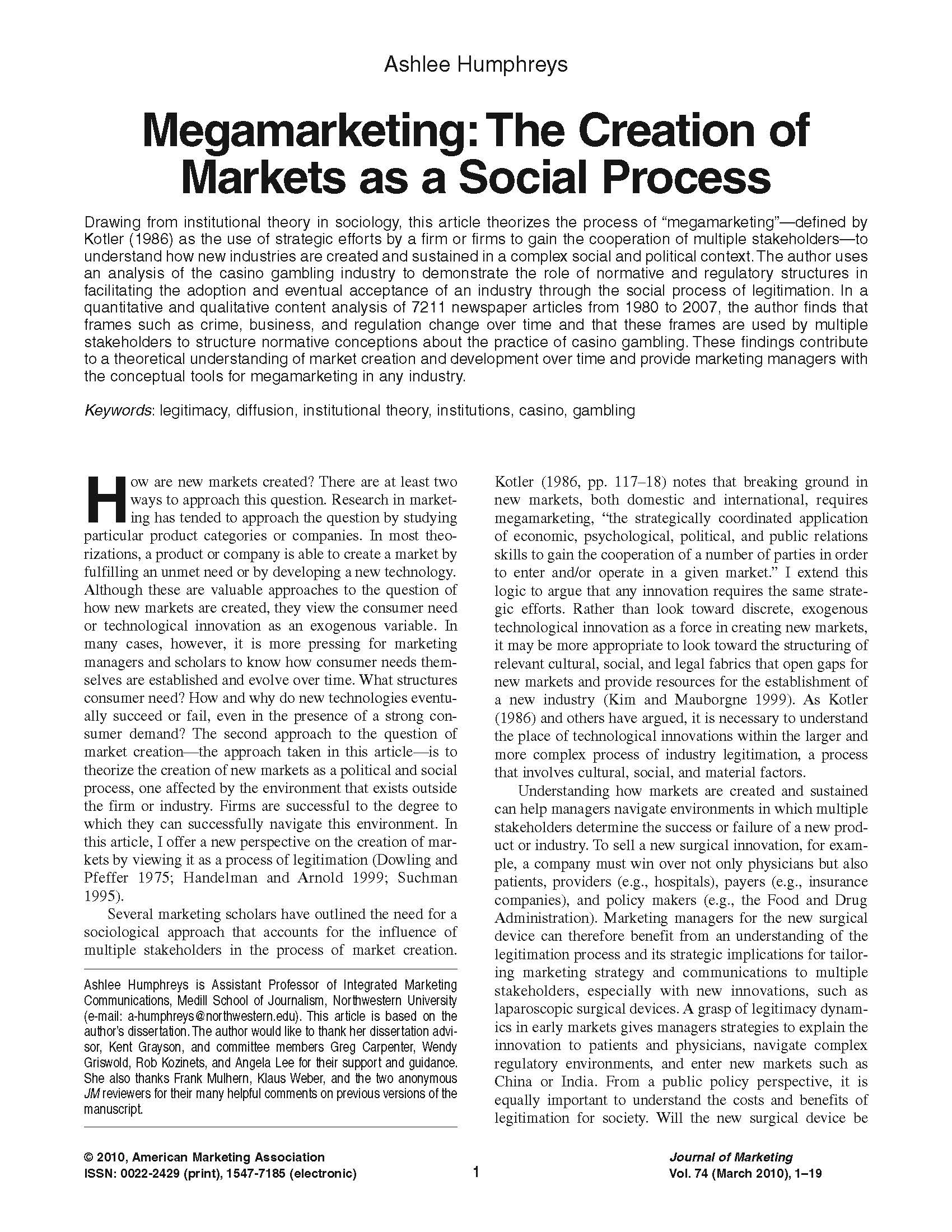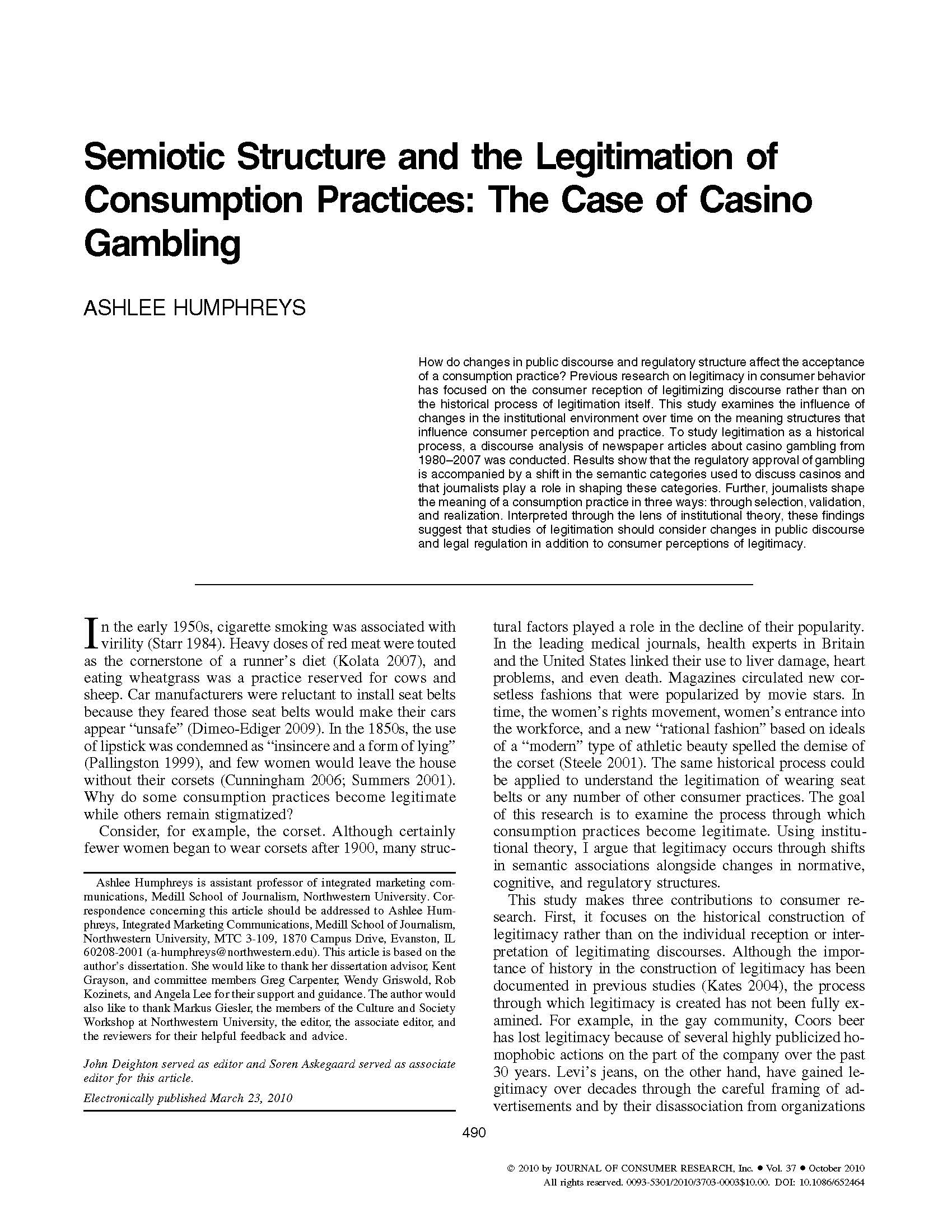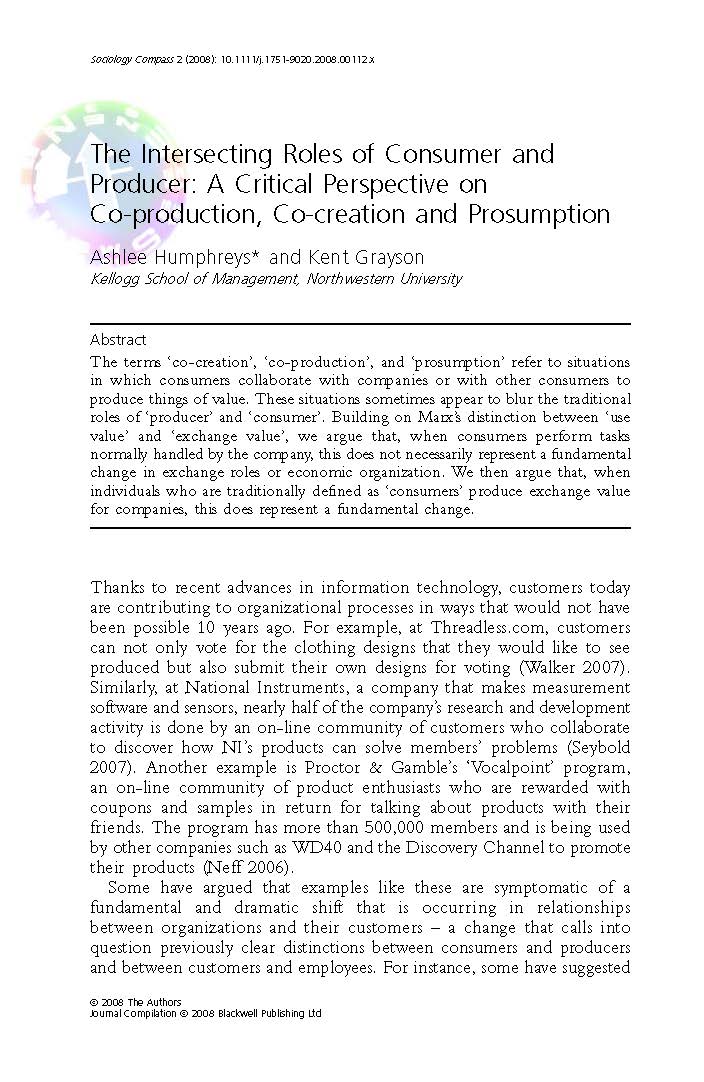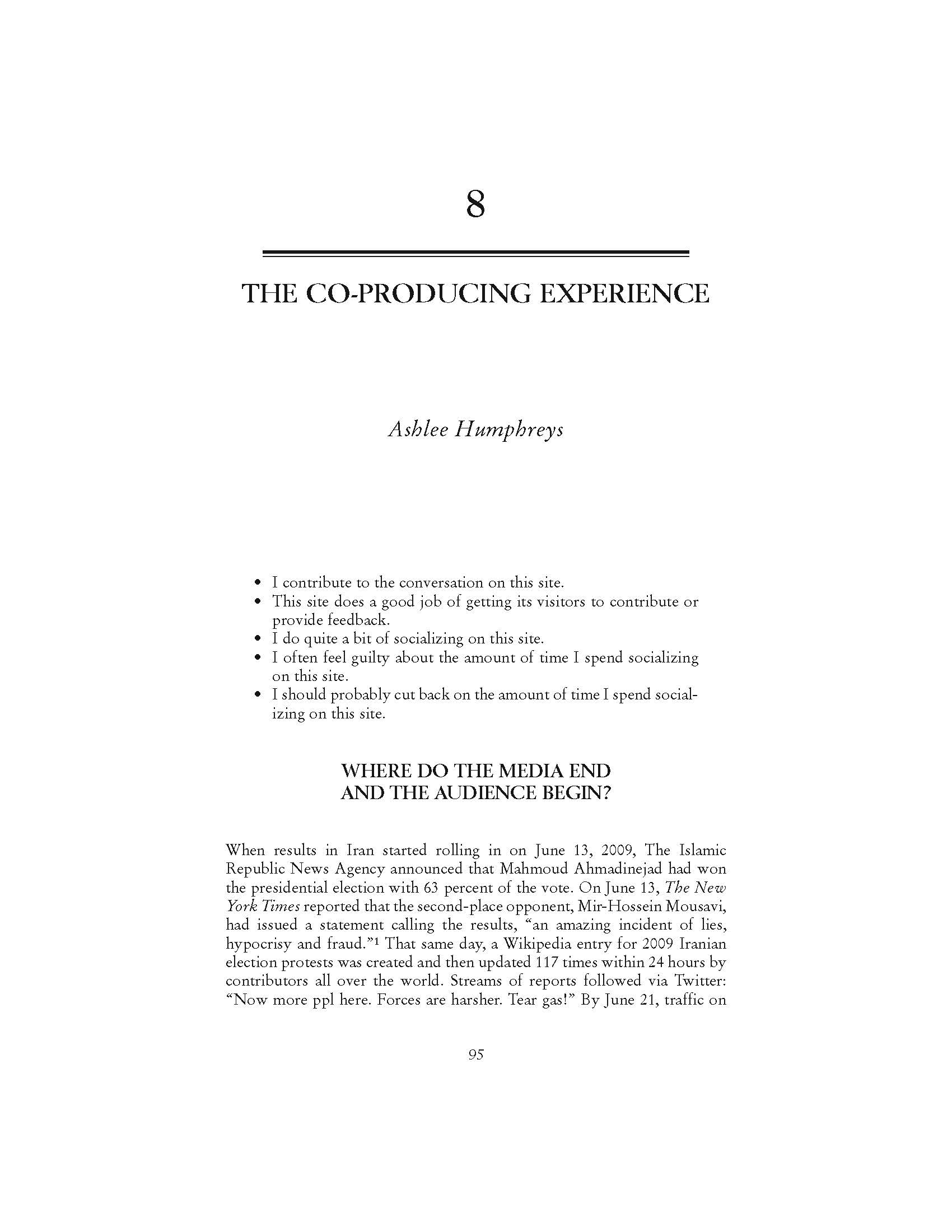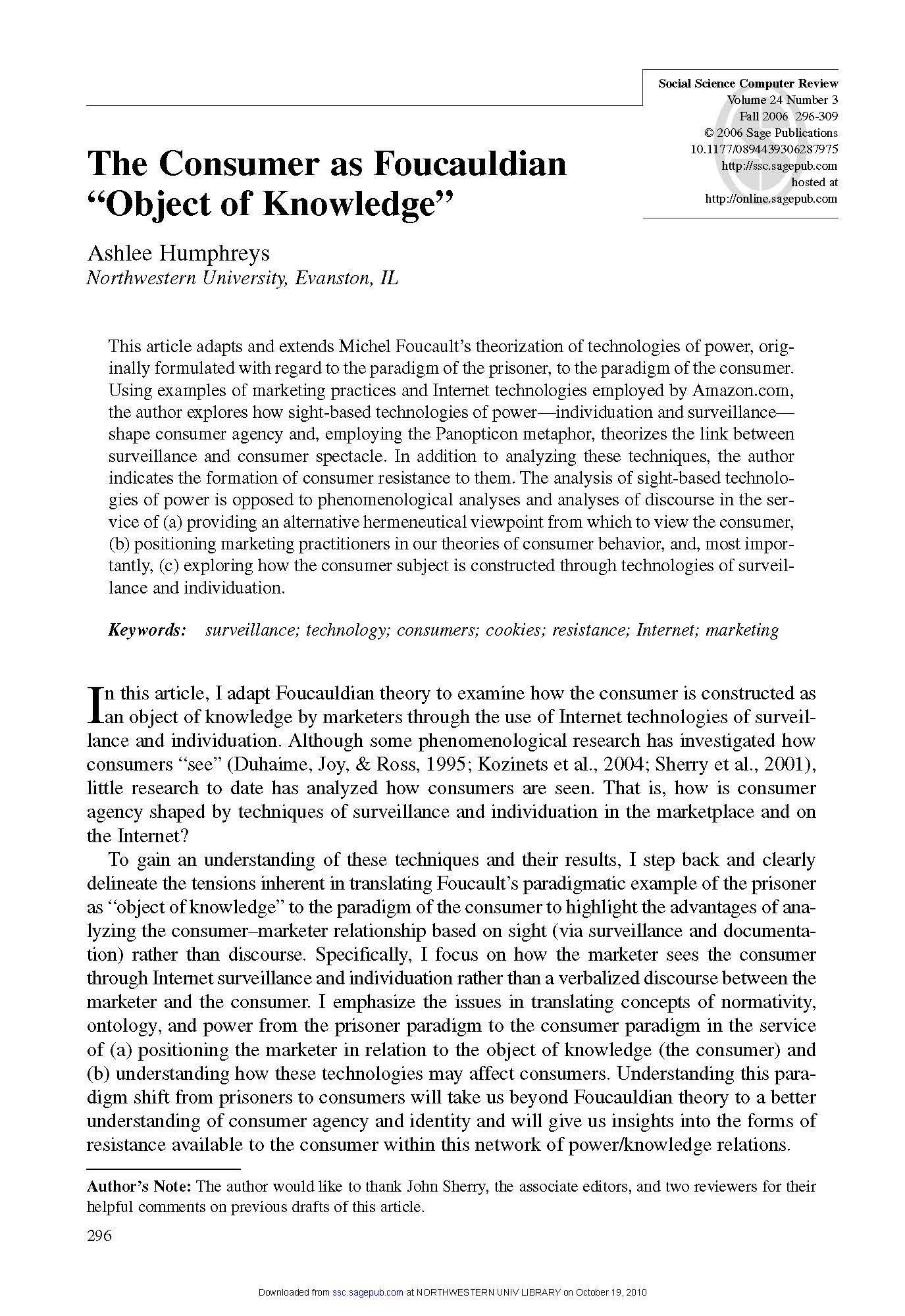books
Social Media: Enduring Principles, Oxford University Press, 2016 (2nd edition in process, 2021)
Social Media: Enduring Principles offers a comprehensive overview of topics in social media, ranging from interpersonal communication to the role of social media in culture and society. It covers not only issues like online identity and community, but also tackles more analytical topics like social media measurement, network analysis, and social media economics at an introductory level. In contrast to other books, Social Media takes a social science approach by providing a synthesis of empirical research conducted in communications, cultural studies, sociology, and psychology. It is also theoretical, in that it bases each chapter on set of social science theories and concepts rather than platform-specific frameworks and findings. By presenting what we know about social media, each chapter sets up questions, examples, and further reading to provoke class discussion and analysis. Rather than providing the final word or predictive prognostications, it aims to open a well-structured, well-grounded conversation about media transition and its effects.
Articles
Uniting the Tribes: Using Text for Marketing Insight with Jonah Berger, Stephan Ludwig, Wendy W. Moe, Oded Netzer, and David A. Schweidel
Journal of Marketing 2020, Vol. 84(1) 1-25
Words are part of almost every marketplace interaction. Online reviews, customer service calls, press releases, marketing communications, and other interactions create a wealth of textual data. But how can marketers best use such data? This article provides an overview of automated textual analysis and details how it can be used to generate marketing insights. The authors discuss how text reflects qualities of the text producer (and the context in which the text was produced) and impacts the audience or text recipient. Next, they discuss how text can be a powerful tool both for prediction and for understanding (i.e., insights). Then, the authors overview methodologies and metrics used in text analysis, providing a set of guidelines and procedures. Finally, they further highlight some common metrics and challenges and discuss how researchers can address issues of internal and external validity. They conclude with a discussion of potential areas for future work. Along the way, the authors note how textual analysis can unite the tribes of marketing. While most marketing problems are interdisciplinary, the field is often fragmented. By involving skills and ideas from each of the subareas of marketing, text analysis has the potential to help unite the field with a common set of tools and approaches.
Status Games: Market Driving through Social Influence in the U.S. Wine Industry with Gregory Carpenter
Journal of Marketing 2018, Vol. 82, 141–159
Research on market orientation finds that market-driven firms succeed by identifying and appealing to consumer needs. Yet many technologically innovative firms achieve remarkable success by taking a market-driving approach. The ways that firms drive markets without disruptive innovation, however, remain unclear. Adopting a market-systems perspective, the authors conduct an ethnographic analysis of producers, distributors, retailers, critics, and consumers in the U.S. wine market. They find that firms drive the market by playing a status game. Firms pursue a vision and advance that vision among influencers inside and outside the industry to gain recognition. Winners of the status game influence and drive social consensus by setting benchmarks and shaping consumer preferences to the firm's advantage. High status is difficult to imitate, creating an advantage that can endure for years or decades.
Automated Text Analysis for Consumer Research with Rebecca Jen-Hui Wang
Journal of Consumer Research, April 2018, Volume 44, Issue 6, Pages 1274–1306.
The amount of digital text available for analysis by consumer researchers has risen dramatically. Consumer discussions on the internet, product reviews, and digital archives of news articles and press releases are just a few potential sources for insights about consumer attitudes, interaction, and culture. Drawing from linguistic theory and methods, this article presents an overview of automated text analysis, providing integration of linguistic theory with constructs commonly used in consumer research, guidance for choosing amongst methods, and advice for resolving sampling and statistical issues unique to text analysis. We argue that although automated text analysis cannot be used to study all phenomena, it is a useful tool for examining patterns in text that neither researchers nor consumers can detect unaided. Text analysis can be used to examine psychological and sociological constructs in consumer-produced digital text by enabling discovery or by providing ecological validity.
Branding Disaster: Re-establishing Trust through the Ideological Containment of Systemic Risk Anxieties with Craig J. Thompson
Journal of Consumer Research, December 2014
Drawing from literary criticism and institutional theory, this article analyzes the public discourse surrounding the Exxon Valdez spill of 1989 and BP Gulf Spill of 2010. While industrial accidents such as oil spills can erode consumers’ trust in experts, a macro-level analysis reveals that media coverage of such events ultimately contains the anxieties that are sparked by initial news coverage. The brand-centric disaster myths generated by media coverage frame public discourse in ways that help to reestablish consumers’ trust in expert systems while also insulating corporations and governmental institutions from more systematic critiques. This analysis contributes to a macro-level theorization of the institutional and ideological structures that shape consumers’ risk perceptions and just world beliefs. It also extends prior accounts of cultural branding by identifying a set of ideological effects that operate in concert with the more commonly discussed therapeutic benefits afforded by marketplace myths.
Framing the Game: Assessing the Impact of Media Frames on Consumer Perceptions of Legitimacy with Kathryn A. LaTour
Journal of Consumer Research, 2013
How do media frames affect consumer judgments of legitimacy? Taking a multi-method approach to this question, we conduct a content analysis media frames for discussing online gambling, perform an event analysis, and then assess the causal mechanism for these shifts in two experiments. We find that users and non-users respond differently to frame elements, with users favoring an established frame and non-users favoring a novel, legitimating frame. This suggests that media frames play a critical role in establishing legitimacy at the sociocultural level, and that framing potentially bridges cognitive and normative legitimacy.
Megamarketing: The Creation of Markets as a Social Process
Journal of Marketing, March 2010
Drawing from institutional theory in sociology, this article theorizes the process of megamarketing—defined by Kotler (1986) as the use of strategic efforts by a firm or firms to gain the cooperation of multiple stakeholders—in order to understand the process by which new industries are created and sustained in a complex social and political context.
Semiotic Structure and the Legitimation of Consumption Practices: The Case of Casino Gambling
Journal of Consumer Research, June 2010
This study examines the influence of changes in the institutional environment over time on the meaning structures that influence consumer perception and practice. Using discourse analysis of newspaper articles, I find that the regulatory approval of gambling is accompanied by a shift in the semantic categories used to discuss casinos and that journalists play a role in shaping these categories.
The Intersecting Roles of Consumer and Producer: A Critical Perspective on Co-production, Co-creation, and Prosumption
Sociology Compass, 2008
In this article, we offer a critical analysis of the ways in which the role of producer and consumer may or may not be blurring as a result of these new practices. Building on Marx’s distinction between “use value” and “exchange value,” we argue that, when consumers perform tasks normally handled by the company, this does not necessarily represent a fundamental change in exchange roles or economic organization. We then identify conditions when an organization’s use of so-called “prosumers” does reflect a fundamental change.
Current Research
"Wine Worlds: Consumer and Producer Status Games in the Wine Industry"
"Professional Contests and the Emergence of Social Media as a Professional Field" with Andrew Smith
"The Construction of Value in Attention Economies"
"Access as a Consumer Orientation and Institution"
Other Publications
Humphreys, Ashlee (forthcoming), “Megamarketing” in Encyclopedia of Management, Volume 9 Marketing, New York: Wiley.
Van Riel, A. C., Calabretta, G., Driessen, P. H., Hillebrand, B., Humphreys, A., Krafft, M., & Beckers, S. F. (forthcoming). Consumer perceptions of service constellations: Implications for service innovation. Journal of Service Management, 24(3), 5-5.
Humphreys, Ashlee (2010), "Advertising," in World Book Encyclopedia. Chicago, Illinois: World Book, Inc.
Humphreys, Ashlee (2010), “Co-Producing Experiences,” in Medill on Media Engagement, Edward Malthouse and Abe Peck Eds. Pine Forge Press.
Humphreys, Ashlee (2009), "Stacking the Deck: Gambling in Film and the Legitimation of Casino Gambling," in Explorations in Consumer Culture Theory, John F. Sherry and Eileen Fischer, eds. London ; New York: Routledge.
Harding, Lora and Ashlee Humphreys (2010), “Self-Brand Attraction: An Interpersonal Attraction Approach to Brand Relationships,” Advances in Consumer Research, Vol. 37, 68-69.
Humphreys, Ashlee and Robert V. Kozinets (2009), “The Construction of Value in Attention Economies,” Advances in Consumer Research, Vol. 36.
Humphreys, Ashlee (2009), “Legitimation and Semiotic Structure,” Advances in Consumer Research, Vol. 36.
Mick, David Glen and Ashlee Humphreys (2008), "Consumer Freedom from Consumer Culture Theory Perspectives," Advances in Consumer Research - North American Conference Proceedings, 35, 18-19.
Humphreys, Ashlee (2008), "Understanding Collaboration and Collective Production: New Insights on Consumer Co-Production," Advances in Consumer Research - North American Conference Proceedings, 35, 63-66.


